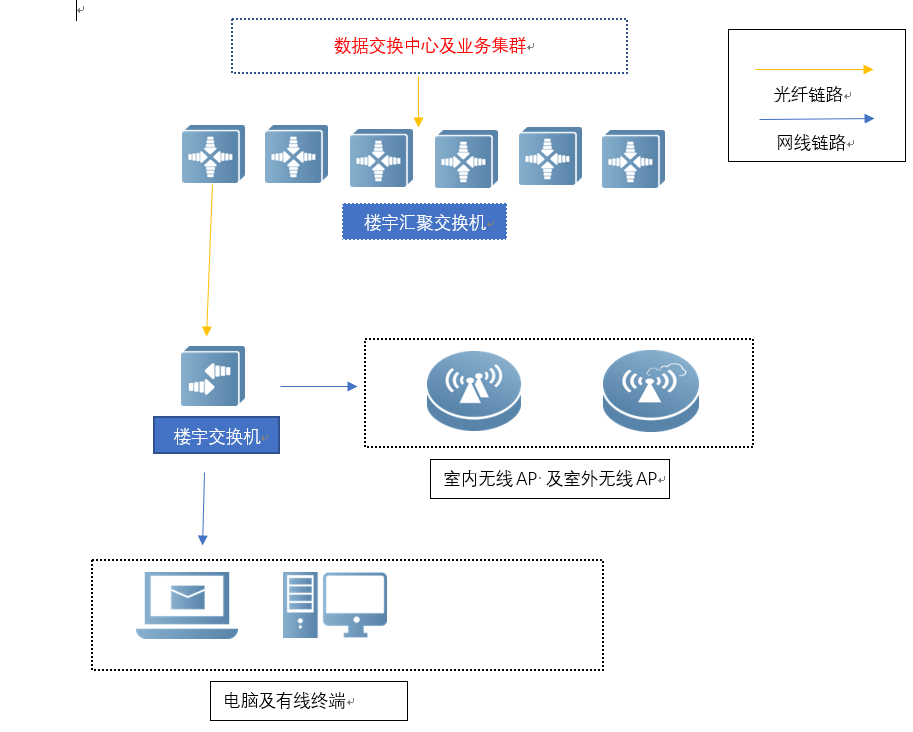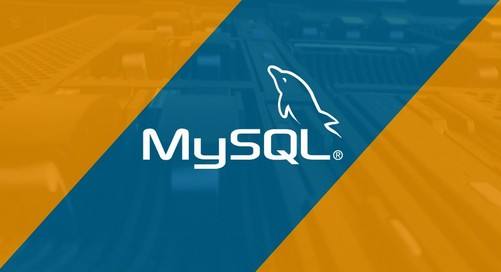我们购买的Vps大多只提供Linux系列系统预装,并不支持Windows系列的系统。自然今天就尝试了一下在Linux上安装Windows操作系统,搜索了一下已经有前辈编写了一键脚本。本着能白嫖何必折腾的思维,自然直接使用了萌咖大佬的Linux shell。

脚本特征
突破没有VNC,没有救援模式,内存比dd包小的限制.
使用Debian Live CD中的busybox做中间媒介,经过复杂的处理,
使本机的网络参数传进Windows操作系统中,
即使没有DHCP能够让Windows获取网络参数,
也能让Windows操作系统在开机的第一时间能够连通网络.
dd脚本安装Windows系统
无论在什么系统环境下,要搞事情,首先要做好准备工作。
我们来给linux系统安装一些必要的软件。
#Debian/Ubuntu #
# 一般自带
#RedHat/CentOS
yum install glibc-common
然后开干,安装windows的时刻到了。
wget --no-check-certificate -qO InstallNET.sh 'https://moeclub.org/attachment/LinuxShell/InstallNET.sh' && bash InstallNET.sh -dd '[Windows dd包直连地址]'
萌咖大佬提供的demo包,是使用win7 ESD版本定制的。
https://moeclub.org/onedrive/IMAGE/Windows/win7emb_x86.tar.gz
# 谷歌文件ID: 1srhylymTjYS-Ky8uLw4R6LCWfAo1F3s7
# 该包只添加了VirtIO驱动,理论上仅能在KVM,Hyper-V构架下正常运行.
# 如需在其他虚拟化构架下运行,请自行添加相关虚拟化驱动.
萌咖大佬demo包的一些注意事项:
- 远程登陆账号为: Administrator
- 远程登陆密码为: Vicer
- 仅修改了主机名,可放心使用.(建议自己制作.)
- 使用的公用网盘,如需长期/大量使用此包请自行备份.
如果不报错,系统将会进入自动重启,并安装windows系统的环节。根据不懂vps的性能差别,初略估计需要30分钟进行系统安装。
Linux shell源代码
可能会有小伙伴觉得代码不可靠,肯能会有后门。这个你大可放心啦,直接把源代码贴出来吧。
展开
#!/bin/bash
export tmpVER=''
export tmpDIST=''
export tmpURL=''
export tmpWORD=''
export tmpMirror=''
export tmpSSL=''
export tmpINS=''
export tmpFW=''
export ipAddr=''
export ipMask=''
export ipGate=''
export linuxdists=''
export ddMode='0'
export setNet='0'
export isMirror='0'
export FindDists='0'
while [[ $# -ge 1 ]]; do
case $1 in
-v|--ver)
shift
tmpVER="$1"
shift
;;
-d|--debian)
shift
linuxdists='debian'
tmpDIST="$1"
shift
;;
-u|--ubuntu)
shift
linuxdists='ubuntu'
tmpDIST="$1"
shift
;;
-dd|--image)
shift
ddMode='1'
tmpURL="$1"
shift
;;
-p|--password)
shift
tmpWORD="$1"
shift
;;
--ip-addr)
shift
ipAddr="$1"
shift
;;
--ip-mask)
shift
ipMask="$1"
shift
;;
--ip-gate)
shift
ipGate="$1"
shift
;;
-a|--auto)
shift
tmpINS='auto'
;;
-m|--manual)
shift
tmpINS='manual'
;;
-apt|--mirror)
shift
isMirror='1'
tmpMirror="$1"
shift
;;
-ssl)
shift
tmpSSL="$1"
shift
;;
--firmware)
shift
tmpFW='1'
;;
*)
echo -ne " Usage:\n\t$0\t-d/--debian [\033[33m\033[04mdists-name\033[0m]\n\t\t\t\t-u/--ubuntu [\033[04mdists-name\033[0m]\n\t\t\t\t-v/--ver [32/\033[33m\033[04mi386\033[0m|64/amd64]\n\t\t\t\t--ip-addr/--ip-gate/--ip-mask\n\t\t\t\t-apt/--mirror\n\t\t\t\t-dd/--image\n\t\t\t\t-a/--auto\n\t\t\t\t-m/--manual\n"
exit 1;
;;
esac
done
[[ "$EUID" -ne '0' ]] && echo "Error:This script must be run as root!" && exit 1;
function CheckDependence(){
FullDependence='0';
for BIN_DEP in `echo "$1" |sed 's/,/\n/g'`
do
if [[ -n "$BIN_DEP" ]]; then
Founded='0';
for BIN_PATH in `echo "$PATH" |sed 's/:/\n/g'`
do
ls $BIN_PATH/$BIN_DEP >/dev/null 2>&1;
if [ $? == '0' ]; then
Founded='1';
break;
fi
done
if [ "$Founded" == '1' ]; then
echo -en "$BIN_DEP\t\t[\033[32mok\033[0m]\n";
else
FullDependence='1';
echo -en "$BIN_DEP\t\t[\033[31mfail\033[0m]\n";
fi
fi
done
if [ "$FullDependence" == '1' ]; then
exit 1;
fi
}
clear && echo -e "\n\033[36m# Check Dependence\033[0m\n"
CheckDependence wget,awk,grep,sed,cut,cat,cpio,gzip
[ "$ddMode" == '1' ] && {
CheckDependence iconv
}
[[ -f '/boot/grub/grub.cfg' ]] && GRUBOLD='0' && GRUBDIR='/boot/grub' && GRUBFILE='grub.cfg';
[[ -z "$GRUBDIR" ]] && [[ -f '/boot/grub2/grub.cfg' ]] && GRUBOLD='0' && GRUBDIR='/boot/grub2' && GRUBFILE='grub.cfg';
[[ -z "$GRUBDIR" ]] && [[ -f '/boot/grub/grub.conf' ]] && GRUBOLD='1' && GRUBDIR='/boot/grub' && GRUBFILE='grub.conf';
[ -z "$GRUBDIR" -o -z "$GRUBFILE" ] && echo -ne "Error! \nNot Found grub path.\n" && exit 1;
[[ -n "$tmpVER" ]] && {
[ "$tmpVER" == '32' -o "$tmpVER" == 'i386' ] && VER='i386';
[ "$tmpVER" == '64' -o "$tmpVER" == 'amd64' ] && VER='amd64';
}
[[ -z "$VER" ]] && VER='i386';
[[ -z "$linuxdists" ]] && linuxdists='debian';
[[ "$isMirror" == '1' ]] && [[ -n "$tmpMirror" ]] && {
tmpDebianMirror="$(echo -n "$tmpMirror" |grep -Eo '.*\.(\w+)')";
echo -n "$tmpDebianMirror" |grep -q '://';
[[ $? -eq '0' ]] && {
DebianMirror="$(echo -n "$tmpDebianMirror" |awk -F'://' '{print $2}')";
} || {
DebianMirror="$(echo -n "$tmpDebianMirror")";
}
} || {
[[ "$linuxdists" == 'debian' ]] && DebianMirror='httpredir.debian.org';
[[ "$linuxdists" == 'ubuntu' ]] && DebianMirror='archive.ubuntu.com';
}
[[ -z "$DebianMirrorDirectory" ]] && [[ -n "$DebianMirror" ]] && [[ -n "$tmpMirror" ]] && {
DebianMirrorDirectory="$(echo -n "$tmpMirror" |awk -F''${DebianMirror}'' '{print $2}' |sed 's/\/$//g')";
}
[[ -n "$DebianMirror" ]] && {
[[ "$DebianMirrorDirectory" == '/' ]] && {
[[ "$linuxdists" == 'debian' ]] && DebianMirrorDirectory='/debian';
[[ "$linuxdists" == 'ubuntu' ]] && DebianMirrorDirectory='/ubuntu';
}
[[ -z "$DebianMirrorDirectory" ]] && {
[[ "$linuxdists" == 'debian' ]] && DebianMirrorDirectory='/debian';
[[ "$linuxdists" == 'ubuntu' ]] && DebianMirrorDirectory='/ubuntu';
}
}
[[ -z "$tmpDIST" ]] && {
[[ "$linuxdists" == 'debian' ]] && DIST='wheezy';
[[ "$linuxdists" == 'ubuntu' ]] && DIST='trusty';
}
[[ -z "$DIST" ]] && {
DIST="$(echo "$tmpDIST" |sed -r 's/(.*)/\L\1/')";
echo "$DIST" |grep -q '[0-9]';
[[ $? -eq '0' ]] && {
isDigital="$(echo "$DIST" |grep -o '[0-9\.]\{1,\}' |sed -n '1h;1!H;$g;s/\n//g;$p' |cut -d'.' -f1)";
[[ -n $isDigital ]] && {
[[ "$isDigital" == '7' ]] && DIST='wheezy';
[[ "$isDigital" == '8' ]] && DIST='jessie';
[[ "$isDigital" == '9' ]] && DIST='stretch';
[[ "$isDigital" == '10' ]] && DIST='buster';
}
}
}
[[ "$ddMode" == '1' ]] && {
[[ -n "$tmpURL" ]] && {
linuxdists='debian';
DIST='jessie';
VER='amd64';
tmpINS='auto';
DDURL="$tmpURL"
echo "$DDURL" |grep -q '^http://\|^ftp://\|^https://';
[[ $? -ne '0' ]] && echo 'Please input vaild URL,Only support http://, ftp:// and https:// !' && exit 1;
[[ -n "$tmpSSL" ]] && SSL_SUPPORT="$tmpSSL";
[[ -z "$SSL_SUPPORT" ]] && SSL_SUPPORT='https://moeclub.org/get-wget_udeb_amd64';
} || {
echo 'Please input vaild URL! ';
exit 1;
}
}
DistsList="$(wget --no-check-certificate -qO- "http://$DebianMirror$DebianMirrorDirectory/dists/" |grep -o 'href=.*/"' |cut -d'"' -f2 |sed '/-\|old\|Debian\|experimental\|stable\|test\|sid\|devel/d' |grep '^[^/]' |sed -n '1h;1!H;$g;s/\n//g;s/\//\;/g;$p')";
for CheckDEB in `echo "$DistsList" |sed 's/;/\n/g'`
do
[[ "$CheckDEB" == "$DIST" ]] && FindDists='1';
[[ "$FindDists" == '1' ]] && break;
done
[[ "$FindDists" == '0' ]] && {
echo -ne '\nThe dists version not found, Please check it! \n\n'
bash $0 error;
exit 1;
}
[[ -n "$tmpINS" ]] && {
[[ "$tmpINS" == 'auto' ]] && inVNC='n';
[[ "$tmpINS" == 'manual' ]] && inVNC='y';
}
[ -n "$ipAddr" ] && [ -n "$ipMask" ] && [ -n "$ipGate" ] && setNet='1';
[[ -n "$tmpWORD" ]] && myPASSWORD="$tmpWORD";
[[ -n "$tmpFW" ]] && INCFW="$tmpFW";
[[ -z "$myPASSWORD" ]] && myPASSWORD='Vicer';
[[ -z "$INCFW" ]] && INCFW='0';
clear && echo -e "\n\033[36m# Install\033[0m\n"
ASKVNC(){
inVNC='y';
[[ "$ddMode" == '0' ]] && {
echo -ne "\033[34mCan you login VNC?\033[0m\e[33m[\e[32my\e[33m/n]\e[0m "
read tmpinVNC
[[ -n "$tmpinVNC" ]] && inVNCtmp="$tmpinVNC"
}
[ "$inVNCtmp" == 'y' -o "$inVNCtmp" == 'Y' ] && inVNC='y';
[ "$inVNCtmp" == 'n' -o "$inVNCtmp" == 'N' ] && inVNC='n';
}
[ "$inVNC" == 'y' -o "$inVNC" == 'n' ] || ASKVNC;
[[ "$linuxdists" == 'debian' ]] && LinuxName='Debian';
[[ "$linuxdists" == 'ubuntu' ]] && LinuxName='Ubuntu';
[[ "$ddMode" == '0' ]] && {
[[ "$inVNC" == 'y' ]] && echo -e "\033[34mManual Mode\033[0m insatll \033[33m$LinuxName\033[0m [\033[33m$DIST\033[0m] [\033[33m$VER\033[0m] in VNC. "
[[ "$inVNC" == 'n' ]] && echo -e "\033[34mAuto Mode\033[0m insatll \033[33m$LinuxName\033[0m [\033[33m$DIST\033[0m] [\033[33m$VER\033[0m]. "
}
[[ "$ddMode" == '1' ]] && {
echo -ne "\033[34mAuto Mode\033[0m insatll \033[33mWindows\033[0m\n[\033[33m$DDURL\033[0m]\n"
}
echo -e "\n[\033[33m$LinuxName\033[0m] [\033[33m$DIST\033[0m] [\033[33m$VER\033[0m] Downloading..."
[[ -z "$DebianMirror" ]] && echo -ne "\033[31mError! \033[0mGet debian mirror fail! \n" && exit 1
[[ -z "$DebianMirrorDirectory" ]] && echo -ne "\033[31mError! \033[0mGet debian mirror directory fail! \n" && exit 1
wget --no-check-certificate -qO '/boot/initrd.gz' "http://$DebianMirror$DebianMirrorDirectory/dists/$DIST/main/installer-$VER/current/images/netboot/$linuxdists-installer/$VER/initrd.gz"
[[ $? -ne '0' ]] && echo -ne "\033[31mError! \033[0mDownload 'initrd.gz' failed! \n" && exit 1
wget --no-check-certificate -qO '/boot/linux' "http://$DebianMirror$DebianMirrorDirectory/dists/$DIST/main/installer-$VER/current/images/netboot/$linuxdists-installer/$VER/linux"
[[ $? -ne '0' ]] && echo -ne "\033[31mError! \033[0mDownload 'linux' failed! \n" && exit 1
[[ "$INCFW" == '1' ]] && [[ "$linuxdists" == 'debian' ]] && {
wget --no-check-certificate -qO '/boot/firmware.cpio.gz' "http://cdimage.debian.org/cdimage/unofficial/non-free/firmware/$DIST/current/firmware.cpio.gz"
[[ $? -ne '0' ]] && echo -ne "\033[31mError! \033[0mDownload 'firmware' failed! \n" && exit 1
}
[[ "$setNet" == '1' ]] && {
IPv4="$ipAddr";
MASK="$ipMask";
GATE="$ipGate";
} || {
DEFAULTNET="$(ip route show |grep -o 'default via [0-9]\{1,3\}.[0-9]\{1,3\}.[0-9]\{1,3\}.[0-9]\{1,3\}.*' |head -n1 |sed 's/proto.*\|onlink.*//g' |awk '{print $NF}')";
[[ -n "$DEFAULTNET" ]] && IPSUB="$(ip addr |grep ''${DEFAULTNET}'' |grep 'global' |grep 'brd' |head -n1 |grep -o '[0-9]\{1,3\}.[0-9]\{1,3\}.[0-9]\{1,3\}.[0-9]\{1,3\}/[0-9]\{1,2\}')";
IPv4="$(echo -n "$IPSUB" |cut -d'/' -f1)";
NETSUB="$(echo -n "$IPSUB" |grep -o '/[0-9]\{1,2\}')";
GATE="$(ip route show |grep -o 'default via [0-9]\{1,3\}.[0-9]\{1,3\}.[0-9]\{1,3\}.[0-9]\{1,3\}' |head -n1 |grep -o '[0-9]\{1,3\}.[0-9]\{1,3\}.[0-9]\{1,3\}.[0-9]\{1,3\}')";
[[ -n "$NETSUB" ]] && MASK="$(echo -n '128.0.0.0/1,192.0.0.0/2,224.0.0.0/3,240.0.0.0/4,248.0.0.0/5,252.0.0.0/6,254.0.0.0/7,255.0.0.0/8,255.128.0.0/9,255.192.0.0/10,255.224.0.0/11,255.240.0.0/12,255.248.0.0/13,255.252.0.0/14,255.254.0.0/15,255.255.0.0/16,255.255.128.0/17,255.255.192.0/18,255.255.224.0/19,255.255.240.0/20,255.255.248.0/21,255.255.252.0/22,255.255.254.0/23,255.255.255.0/24,255.255.255.128/25,255.255.255.192/26,255.255.255.224/27,255.255.255.240/28,255.255.255.248/29,255.255.255.252/30,255.255.255.254/31,255.255.255.255/32' |grep -o '[0-9]\{1,3\}.[0-9]\{1,3\}.[0-9]\{1,3\}.[0-9]\{1,3\}'${NETSUB}'' |cut -d'/' -f1)";
}
[[ -n "$GATE" ]] && [[ -n "$MASK" ]] && [[ -n "$IPv4" ]] || {
echo "Not found \`ip command\`, It will use \`route command\`."
ipNum() {
local IFS='.';
read ip1 ip2 ip3 ip4 <<<"$1";
echo $((ip1*(1<<24)+ip2*(1<<16)+ip3*(1<<8)+ip4));
}
SelectMax(){
ii=0;
for IPITEM in `route -n |awk -v OUT=$1 '{print $OUT}' |grep '[0-9]\{1,3\}.[0-9]\{1,3\}.[0-9]\{1,3\}.[0-9]\{1,3\}'`
do
NumTMP="$(ipNum $IPITEM)";
eval "arrayNum[$ii]='$NumTMP,$IPITEM'";
ii=$[$ii+1];
done
echo ${arrayNum[@]} |sed 's/\s/\n/g' |sort -n -k 1 -t ',' |tail -n1 |cut -d',' -f2;
}
[[ -z $IPv4 ]] && IPv4="$(ifconfig |grep 'Bcast' |head -n1 |grep -o '[0-9]\{1,3\}.[0-9]\{1,3\}.[0-9]\{1,3\}.[0-9]\{1,3\}' |head -n1)";
[[ -z $GATE ]] && GATE="$(SelectMax 2)";
[[ -z $MASK ]] && MASK="$(SelectMax 3)";
[[ -n "$GATE" ]] && [[ -n "$MASK" ]] && [[ -n "$IPv4" ]] || {
echo "Error! Not configure network. ";
exit 1;
}
}
[[ "$setNet" != '1' ]] && [[ -f '/etc/network/interfaces' ]] && {
[[ -z "$(sed -n '/iface.*inet static/p' /etc/network/interfaces)" ]] && AutoNet='1' || AutoNet='0';
[[ -d /etc/network/interfaces.d ]] && {
ICFGN="$(find /etc/network/interfaces.d -name '*.cfg' |wc -l)" || ICFGN='0';
[[ "$ICFGN" -ne '0' ]] && {
for NetCFG in `ls -1 /etc/network/interfaces.d/*.cfg`
do
[[ -z "$(cat $NetCFG | sed -n '/iface.*inet static/p')" ]] && AutoNet='1' || AutoNet='0';
[[ "$AutoNet" -eq '0' ]] && break;
done
}
}
}
[[ "$setNet" != '1' ]] && [[ -d '/etc/sysconfig/network-scripts' ]] && {
ICFGN="$(find /etc/sysconfig/network-scripts -name 'ifcfg-*' |grep -v 'lo'|wc -l)" || ICFGN='0';
[[ "$ICFGN" -ne '0' ]] && {
for NetCFG in `ls -1 /etc/sysconfig/network-scripts/ifcfg-* |grep -v 'lo$' |grep -v ':[0-9]\{1,\}'`
do
[[ -n "$(cat $NetCFG | sed -n '/BOOTPROTO.*[dD][hH][cC][pP]/p')" ]] && AutoNet='1' || {
AutoNet='0' && . $NetCFG;
[[ -n $NETMASK ]] && MASK="$NETMASK";
[[ -n $GATEWAY ]] && GATE="$GATEWAY";
}
[[ "$AutoNet" -eq '0' ]] && break;
done
}
}
[[ ! -f $GRUBDIR/$GRUBFILE ]] && echo "Error! Not Found $GRUBFILE. " && exit 1;
[[ ! -f $GRUBDIR/$GRUBFILE.old ]] && [[ -f $GRUBDIR/$GRUBFILE.bak ]] && mv -f $GRUBDIR/$GRUBFILE.bak $GRUBDIR/$GRUBFILE.old;
mv -f $GRUBDIR/$GRUBFILE $GRUBDIR/$GRUBFILE.bak;
[[ -f $GRUBDIR/$GRUBFILE.old ]] && cat $GRUBDIR/$GRUBFILE.old >$GRUBDIR/$GRUBFILE || cat $GRUBDIR/$GRUBFILE.bak >$GRUBDIR/$GRUBFILE;
[[ "$GRUBOLD" == '0' ]] && {
READGRUB='/tmp/grub.read'
cat $GRUBDIR/$GRUBFILE |sed -n '1h;1!H;$g;s/\n/+++/g;$p' |grep -oPm 1 'menuentry\ .*\{.*\}\+\+\+' |sed 's/\+\+\+/\n/g' >$READGRUB
LoadNum="$(cat $READGRUB |grep -c 'menuentry ')"
if [[ "$LoadNum" -eq '1' ]]; then
cat $READGRUB |sed '/^$/d' >/tmp/grub.new;
elif [[ "$LoadNum" -gt '1' ]]; then
CFG0="$(awk '/menuentry /{print NR}' $READGRUB|head -n 1)";
CFG2="$(awk '/menuentry /{print NR}' $READGRUB|head -n 2 |tail -n 1)";
CFG1="";
for tmpCFG in `awk '/}/{print NR}' $READGRUB`
do
[ "$tmpCFG" -gt "$CFG0" -a "$tmpCFG" -lt "$CFG2" ] && CFG1="$tmpCFG";
done
[[ -z "$CFG1" ]] && {
echo "Error! read $GRUBFILE. ";
exit 1;
}
sed -n "$CFG0,$CFG1"p $READGRUB >/tmp/grub.new;
[[ -f /tmp/grub.new ]] && [[ "$(grep -c '{' /tmp/grub.new)" -eq "$(grep -c '}' /tmp/grub.new)" ]] || {
echo -ne "\033[31mError! \033[0mNot configure $GRUBFILE. \n";
exit 1;
}
fi
[ ! -f /tmp/grub.new ] && echo "Error! $GRUBFILE. " && exit 1;
sed -i "/menuentry.*/c\menuentry\ \'Install OS \[$DIST\ $VER\]\'\ --class debian\ --class\ gnu-linux\ --class\ gnu\ --class\ os\ \{" /tmp/grub.new
sed -i "/echo.*Loading/d" /tmp/grub.new;
}
[[ "$GRUBOLD" == '1' ]] && {
CFG0="$(awk '/title /{print NR}' $GRUBDIR/$GRUBFILE|head -n 1)";
CFG1="$(awk '/title /{print NR}' $GRUBDIR/$GRUBFILE|head -n 2 |tail -n 1)";
[[ -n $CFG0 ]] && [ -z $CFG1 -o $CFG1 == $CFG0 ] && sed -n "$CFG0,$"p $GRUBDIR/$GRUBFILE >/tmp/grub.new;
[[ -n $CFG0 ]] && [ -z $CFG1 -o $CFG1 != $CFG0 ] && sed -n "$CFG0,$CFG1"p $GRUBDIR/$GRUBFILE >/tmp/grub.new;
[[ ! -f /tmp/grub.new ]] && echo "Error! configure append $GRUBFILE. " && exit 1;
sed -i "/title.*/c\title\ \'Install OS \[$DIST\ $VER\]\'" /tmp/grub.new;
sed -i '/^#/d' /tmp/grub.new;
}
[[ -n "$(grep 'linux.*/\|kernel.*/' /tmp/grub.new |awk '{print $2}' |tail -n 1 |grep '^/boot/')" ]] && Type='InBoot' || Type='NoBoot';
LinuxKernel="$(grep 'linux.*/\|kernel.*/' /tmp/grub.new |awk '{print $1}' |head -n 1)";
[[ -z "$LinuxKernel" ]] && echo "Error! read grub config! " && exit 1;
LinuxIMG="$(grep 'initrd.*/' /tmp/grub.new |awk '{print $1}' |tail -n 1)";
[ -z "$LinuxIMG" ] && sed -i "/$LinuxKernel.*\//a\\\tinitrd\ \/" /tmp/grub.new && LinuxIMG='initrd';
[[ "$Type" == 'InBoot' ]] && {
sed -i "/$LinuxKernel.*\//c\\\t$LinuxKernel\\t\/boot\/linux auto=true hostname=$linuxdists domain= -- quiet" /tmp/grub.new;
sed -i "/$LinuxIMG.*\//c\\\t$LinuxIMG\\t\/boot\/initrd.gz" /tmp/grub.new;
}
[[ "$Type" == 'NoBoot' ]] && {
sed -i "/$LinuxKernel.*\//c\\\t$LinuxKernel\\t\/linux auto=true hostname=$linuxdists domain= -- quiet" /tmp/grub.new;
sed -i "/$LinuxIMG.*\//c\\\t$LinuxIMG\\t\/initrd.gz" /tmp/grub.new;
}
sed -i '$a\\n' /tmp/grub.new;
[[ "$inVNC" == 'n' ]] && {
GRUBPATCH='0';
[ -f '/etc/network/interfaces' -o -d '/etc/sysconfig/network-scripts' ] || {
echo "Error, Not found interfaces config.";
exit 1;
}
INSERTGRUB="$(awk '/menuentry /{print NR}' $GRUBDIR/$GRUBFILE|head -n 1)"
sed -i ''${INSERTGRUB}'i\\n' $GRUBDIR/$GRUBFILE;
sed -i ''${INSERTGRUB}'r /tmp/grub.new' $GRUBDIR/$GRUBFILE;
[[ -f $GRUBDIR/grubenv ]] && sed -i 's/saved_entry/#saved_entry/g' $GRUBDIR/grubenv;
[[ -d /boot/tmp ]] && rm -rf /boot/tmp;
mkdir -p /boot/tmp;
cd /boot/tmp;
gzip -d < ../initrd.gz | cpio --extract --verbose --make-directories --no-absolute-filenames >>/dev/null 2>&1
cat >/boot/tmp/preseed.cfg<'/boot/tmp/net.tmp';
}
WinNoDHCP(){
echo -ne "@ECHO OFF\r\ncd\056\076\045windir\045\GetAdmin\r\nif\040exist\040\045windir\045\GetAdmin\040\050del\040\057f\040\057q\040\042\045windir\045\GetAdmin\042\051\040else\040\050\r\necho\040CreateObject^\050\042Shell\056Application\042^\051\056ShellExecute\040\042\045~s0\042\054\040\042\045\052\042\054\040\042\042\054\040\042runas\042\054\040\061\040\076\076\040\042\045temp\045\Admin\056vbs\042\r\n\042\045temp\045\Admin\056vbs\042\r\ndel\040\057f\040\057q\040\042\045temp\045\Admin\056vbs\042\r\nexit\040\057b\040\062\051\r\nfor\040\057f\040\042tokens=\063\052\042\040\045\045i\040in\040\050\047netsh\040interface\040show\040interface\040^|more\040+3\040^|findstr\040\057R\040\042\u672c\u5730\056\052\040\u4ee5\u592a\056\052\040Local\056\052\040Ethernet\042\047\051\040do\040\050set\040EthName=\045\045j\051\r\nnetsh\040-c\040interface\040ip\040set\040address\040name=\042\045EthName\045\042\040source=static\040address=$IPv4\040mask=$MASK\040gateway=$GATE\r\nnetsh\040-c\040interface\040ip\040add\040dnsservers\040name=\042\045EthName\045\042\040address=\070\056\070\056\070\056\070\040index=1\040validate=no\r\nnetsh\040-c\040interface\040ip\040add\040dnsservers\040name=\042\045EthName\045\042\040address=\070\056\070\056\064\056\064\040index=2\040validate=no\r\ncd\040\057d\040\042\045ProgramData\045\057Microsoft\057Windows\057Start\040Menu\057Programs\057Startup\042\r\ndel\040\057f\040\057q\040net\056bat\r\n\r\n" >'/boot/tmp/net.tmp';
}
[[ "$setNet" == '1' ]] && WinNoDHCP;
[[ "$setNet" == '0' ]] && {
[[ "$AutoNet" -eq '1' ]] && WinDHCP;
[[ "$AutoNet" -eq '0' ]] && WinNoDHCP;
}
iconv -f 'UTF-8' -t 'GBK' '/boot/tmp/net.tmp' -o '/boot/tmp/net.bat'
rm -rf '/boot/tmp/net.tmp'
echo "$DDURL" |grep -q '^https://'
[[ $? -eq '0' ]] && {
echo -ne '\nAdd ssl support...\n'
[[ -n $SSL_SUPPORT ]] && {
wget --no-check-certificate -qO- "$SSL_SUPPORT" |tar -x
[[ ! -f /boot/tmp/usr/bin/wget ]] && echo 'Error! SSL_SUPPORT.' && exit 1;
sed -i 's/wget\ -qO-/\/usr\/bin\/wget\ --no-check-certificate\ --retry-connrefused\ --tries=7\ --continue\ -qO-/g' /boot/tmp/preseed.cfg
[[ $? -eq '0' ]] && echo -ne 'Success! \n\n'
} || {
echo -ne 'Not ssl support package! \n\n';
exit 1;
}
}
}
[[ "$ddMode" == '0' ]] && {
sed -i '/anna-install/d' /boot/tmp/preseed.cfg
sed -i 's/wget.*\/sbin\/reboot\;\ //g' /boot/tmp/preseed.cfg
}
[[ "$INCFW" == '1' ]] && [[ "$linuxdists" == 'debian' ]] && [[ -f '/boot/firmware.cpio.gz' ]] && {
gzip -d < ../firmware.cpio.gz | cpio --extract --verbose --make-directories --no-absolute-filenames >>/dev/null 2>&1
}
rm -rf ../initrd.gz;
find . | cpio -H newc --create --verbose | gzip -9 > ../initrd.gz;
rm -rf /boot/tmp;
}
[[ "$inVNC" == 'y' ]] && {
sed -i '$i\\n' $GRUBDIR/$GRUBFILE
sed -i '$r /tmp/grub.new' $GRUBDIR/$GRUBFILE
echo -e "\n\033[33m\033[04mIt will reboot! \nPlease look at VNC! \nSelect\033[0m\033[32m Install OS [$DIST $VER] \033[33m\033[4mto install system.\033[04m\n\n\033[31m\033[04mThere is some information for you.\nDO NOT CLOSE THE WINDOW! \033[0m\n"
echo -e "\033[35mIPv4\t\tNETMASK\t\tGATEWAY\033[0m"
echo -e "\033[36m\033[04m$IPv4\033[0m\t\033[36m\033[04m$MASK\033[0m\t\033[36m\033[04m$GATE\033[0m\n\n"
read -n 1 -p "Press Enter to reboot..." INP
[[ "$INP" != '' ]] && echo -ne '\b \n\n';
}
chown root:root $GRUBDIR/$GRUBFILE
chmod 444 $GRUBDIR/$GRUBFILE
sleep 3 && reboot >/dev/null 2>&1
安装完成后,使用电脑自带的远程桌面连接就可以登录到系统了。
总结
自然linux Vps安装为windows vps的大致过程就是这样了,可以说就是一步到位啊。但是,linux vps安装成windows vps后性能损害实在无法接受,终于知道为什么主机上一般都要求几核几G内存才可以选择windows了,别以为这就可以愉快的玩win了,几核几G只是跑win的门槛。
果断重装系统,还是linux vps用着舒服。
 小心灵学院
小心灵学院





